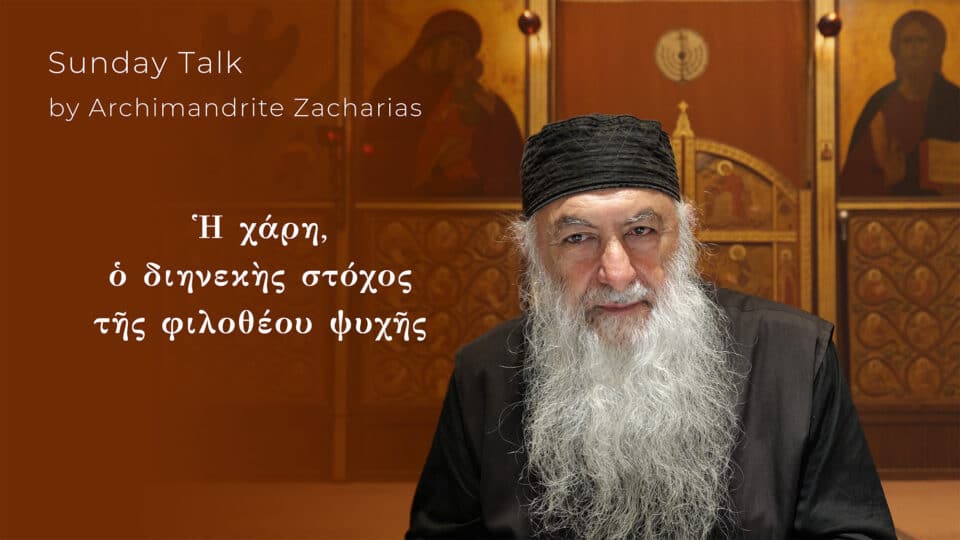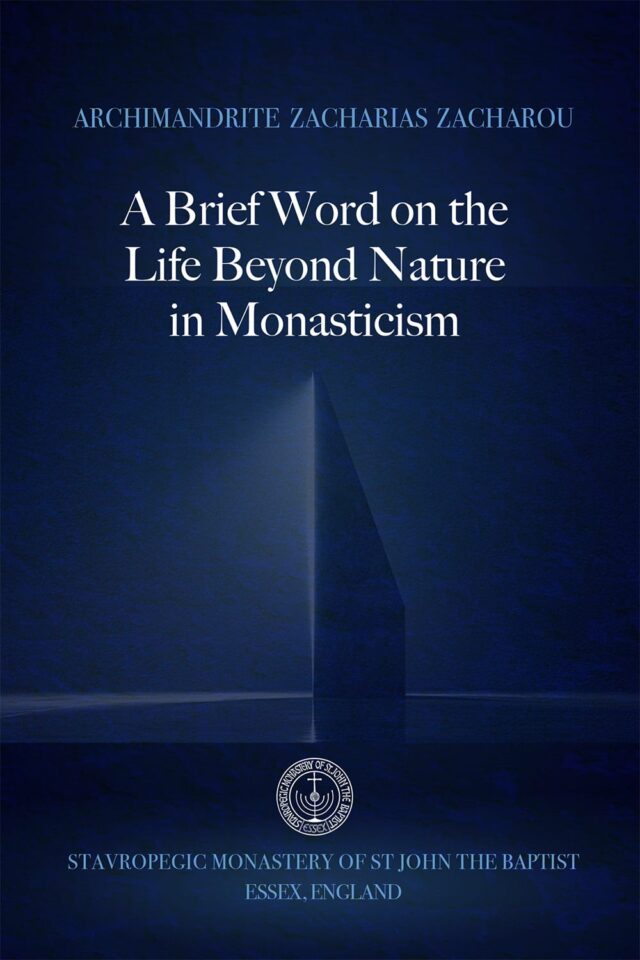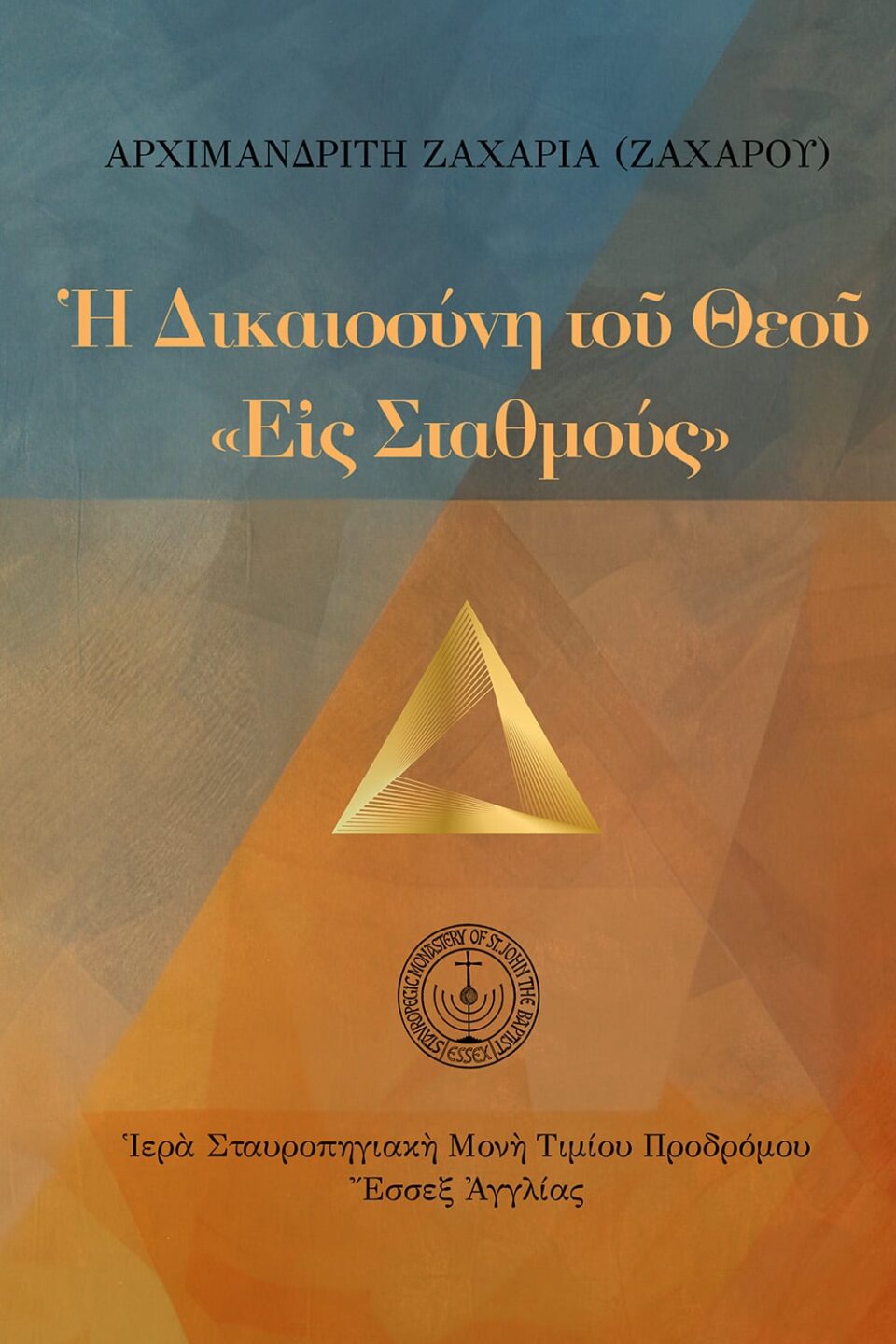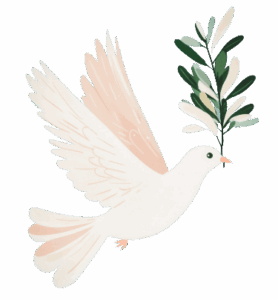Ἡ ὁδὸς κάθε ἀνθρώπου πρὸς τὸν Θεὸ εἶναι μοναδική, γι’ αὐτὸ καὶ εἶναι δύσκολο νὰ μιλήσουμε γιὰ τὴν πνευματικὴ ζωὴ ἔχοντας ἕνα γενικὸ σχῆμα ἢ πρότυπο. Ὡστόσο, ὁ ὅσιος Γέροντας Σωφρόνιος, ἔχοντας παρατηρήσει ὅτι ὁρισμένα γνωρίσματα εἶναι κοινὰ σὲ ὅλους μας – ἐπειδὴ ὅλοι φέρουμε τὴν ἴδια ἀνθρώπινη φύση – κατέληξε στὴ θεώρηση τῆς πνευματικῆς ζωῆς σὲ τρία διακριτὰ στάδια. Ἡ θεωρία αὐτὴ ἐκδιδάσκει θεμελιώδεις ἀσκητικὲς ἀρχές, ποὺ ἀφοροῦν πρακτικὰ τὴ ζωὴ κάθε Χριστιανοῦ.
Τὸ κάθε στάδιο συνιστᾶ σταθμὸ μὲ ἰδιάζουσα κατάσταση. Ἀποσκοπεῖ νὰ ἐκδιδάξει τὸν Χριστιανὸ ἀθλητῆ τὴν ὁδὸ τοῦ Κυρίου, νὰ τὸν μυήσει στὸ «μυστήριο τῶν ὁδῶν τῆς σωτηρίας», καί, ἐν τέλει, νὰ τὸν καταστήσει νόμιμο κληρονόμο τῆς χάριτος τῆς θείας υἱοθεσίας, «κληρονόμον Θεοῦ καὶ συγκληρονόμον Χριστοῦ»1Ρωμ. 8, 17..
Ὁ Γέροντας ἀναφέρει ὡς πρῶτο στάδιο τὴν ἐπίσκεψη τοῦ Θείου Πνεύματος, κατὰ τὴν ὁποία ὁ ἄνθρωπος συνάπτει διαθήκη μὲ τὸν Θεό· ὡς δεύτερο τὸν μακροχρόνιο καὶ σκληρὸ ἀγώνα, τὸν ὁποῖο διεξάγει ὁ ἄνθρωπος ὅταν ὁ Θεὸς ἀποσύρει τὴ χάρη Του· τέλος ὡς τρίτο τὴ μόνιμη ἀνάκτηση τῆς σωτήριας χάριτος.
Ἡ πρώτη χάρη εἶναι καθαρὴ δωρεὰ ἄνωθεν. Δίδεται, ἐνίοτε πλουσίως, ὅταν ὁ Θεὸς διακρίνει ἀγαθὴ διάθεση στὴν ψυχή, κάποιο ἄνοιγμα τῆς καρδιᾶς. Ὁ Θεὸς μὲ τὴ δωρεά Του ἀποκαλύπτει στὸν ἄνθρωπο τὸν τύπο τῆς θεοειδοῦς ζωῆς. Τοῦ φανερώνει τὸν τύπο τῶν θείων ἀρετῶν καὶ τὶς ἐπαγγελίες Του. Τοῦ διδάσκει ποιός εἶναι ὁ πρὸ καταβολῆς κόσμου θαυμαστὸς προορισμός του καὶ τί πρέπει νὰ ἐκζητεῖ στὴ ζωή του.
Ἡ δικαιοσύνη τοῦ Θεοῦ «εἰς σταθμούς»
Ἡ περίοδος αὐτὴ ἀποτελεῖ πρόσφορο καιρὸ γιὰ τὴν ἀπόκτηση ἀγαθῶν ἕξεων: τῆς μετανοίας, τῆς ἀδιάλειπτης προσευχῆς, τῆς νήψεως. Ὡστόσο, πρόκειται γιὰ «ἄδικον μαμωνᾶν καὶ ξένον πλοῦτον»2Λουκ. 16,11..Ὁ ἄνθρωπος δὲν μπορεῖ νὰ φυλάξει τὴν πρώτη δωρεὰ ἐπὶ μακρόν. Γιὰ ποικίλους λόγους, κάποια στιγμὴ ἡ πρώτη χάρη ἀποσύρεται. Ἐκεῖνο ποὺ κατὰ τὸ πρῶτο στάδιο τῆς κλήσεως ἔμοιαζε νὰ εἶναι τελειωτικὸς σύνδεσμος ἀγάπης μεταξὺ Θεοῦ καὶ ἀνθρώπου, τώρα μετατρέπεται σὲ «ἅδη Θεο-εγκαταλείψεως».
Ὁ ἅγιος Σωφρόνιος ὁμιλώντας κατὰ τὴν ἀνεστραμμένη Εὐαγγελικὴ προοπτική, θεωροῦσε τὸ δεύτερο αὐχμηρὸ στάδιο ὡς προνόμιο, ὡς εὐκαιρία, ποὺ δίδεται στὸν ἄνθρωπο νὰ φανερώσει τὴν ἐλεύθερη προαίρεσή του, ὡς καιρὸ δημιουργικῆς ἀναζητήσεως τρόπων ἀνακτήσεως, φυλάξεως καὶ αὐξήσεως τῆς χάριτος.
Ἡ συνήθως παρατεταμένη δεύτερη περίοδος τῆς πνευματικῆς ζωῆς εἶναι πολύτιμη, διότι τότε ἀποδεικνύει ὁ ἄνθρωπος στὸν Θεὸ ὅτι ὄντως εἶναι δικός Του εἴτε ζεῖ καὶ κατατρυφᾶ στὴν εὐδαιμονία τῆς χάριτός Του, εἴτε πεθαίνει στὴν ἄβυσσο τοῦ χωρισμοῦ ἀπὸ Αὐτόν.
Κατ’ οὐσίαν, ἡ δεύτερη περίοδος συνιστᾶ ἄσκηση γιὰ νὰ λάβει ὁ ἄνθρωπος τὴ χάρη τῆς υἱοθεσίας καὶ νὰ ἀκούσει στὴν καρδιά του τὴ φωνὴ τοῦ Κυρίου νὰ ἀναγγέλει: «Υἱός μου εἶ σύ· ἐγὼ σήμερον γεγέννηκά σε»3Ψαλμ. 2,7..
Τότε πραγματοποιεῖται ἡ μετάβαση ἀπὸ τὴν ἀνθρώπινη σφαίρα, ἀπὸ τὰ πρόσκαιρα καὶ σαλευόμενα, στὴ θεία σφαίρα, στὰ αἰώνια καὶ ἀσάλευτα. Ἀρχίζει στὸ ἑξῆς ἡ τρίτη περίοδος. Ἐνδέχεται στὸ ὁρατὸ ἐπίπεδο ἡ «πύρωσις πρὸς πειρασμὸν»4Βλ. Α’ Πέτρ. 4,12· Πράξ. 26,23. νὰ παραμένει ἡ ἴδια καὶ ὁ ἄνθρωπος ἐξωτερικὰ νὰ πάσχει, ἀλλὰ ἡ ψυχὴ ἀνέρχεται πλέον σὲ ἄλλο ἐπίπεδο τοῦ εἶναι. «Ἐνδεδυμένη δύναμιν ἄνωθεν», πανηγυρίζει πλήρης χάριτος, εἰρήνης καὶ υἱϊκῆς χαρᾶς. Διδάσκεται ὅτι, στὴ χριστιανικὴ ζωὴ ὑπάρχουν ἄπειρα παθήματα, καθημερινὴ νέκρωση, ἀλλὰ δὲν ὑπάρχει τραγωδία. Πάλιν καὶ πολλάκις, κάθε φορὰ ποὺ γεύεται τὴ διάβαση «ἐκ τοῦ θανάτου εἰς τὴν ζωήν», θέλει νὰ ψάλλει «ᾆσμα καινὸν» εὐγνωμοσύνης καὶ ἀγάπης πρὸς τὸν «Ἀρχηγὸν καὶ Τελειωτὴν»5Βλ. Ἑβρ. 12,2. τῆς πίστεώς μας, τὸν Παντοκράτορα καὶ Ὑπέρθεο Ἰησοῦ.
Footnotes
- 1Ρωμ. 8, 17.
- 2Λουκ. 16,11.
- 3Ψαλμ. 2,7.
- 4Βλ. Α’ Πέτρ. 4,12· Πράξ. 26,23.
- 5Βλ. Ἑβρ. 12,2.



